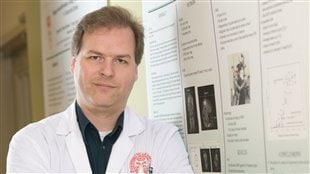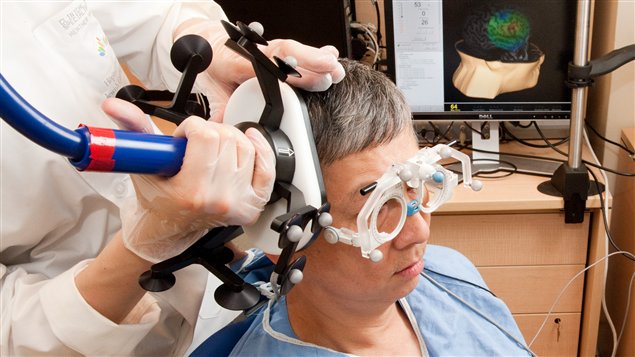Electrical stimulation applied to the brain appears to help stroke survivors recover speech and language function, according to a study by Canadian and German researchers published in the American Heart Association journal Stroke.
.Between 20 and 30 per cent of people who suffer stroke have aphasia which affects their ability to grasp language, read, write or speak.
A magnetic coil was held over the heads of stroke survivors with aphasia. It produced rapidly changing magnetic fields which sent electrical currents to the language region of the brain. This is called transcranial magnetic stimulation or TMS.
The current can increase brain activity or decrease it. Decreasing the activity in the unaffected part of the brain forced the patients’ stroke-affected part to work harder. This is the same kind of treatment used to improve physical mobility in stroke survivors. The unaffected limb is immobilized to make the affected limb work harder.
In the language experiment, thirteen stroke survivors with several types of aphasia were given the TMS and 11 got a sham treatment. All received the other, traditional speech and language therapy.
TMS induced more brain activity
Those who got the TMS had two to three times the improvement.

researchers tested electrical stimulation in the
brains of stroke survivors.
© Jewish General Hospital
“We took brain scans of these patients prior to the therapy and after the therapy,” said Dr. Alexander Thiel, associate professor of neurology and neurosurgery at McGill University in Montreal and the study’s lead author, “and we were actually able to demonstrate that in those patients that received the brain stimulation therapy, the language network in the left, affected hemisphere was much more active than in patients who didn’t receive it.”
More study needed
More studies are needed to find out which stroke survivors are most likely to benefit from this kind of therapy. Since the TMS needs to be administered along with other forms of speech and language therapy, patients must have some language ability.
Brain stimulation is also believed to be most effective early, within about five weeks after a stroke and it is cannot be administered to those who have had seizures or who have pacemakers.
Larger clinical trials will be funded by the Canadian Institutes of Health Research and will be launched at four Canadian sites and one German site later this year.







For reasons beyond our control, and for an undetermined period of time, our comment section is now closed. However, our social networks remain open to your contributions.